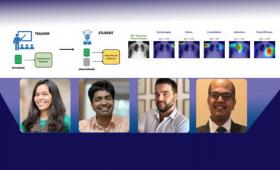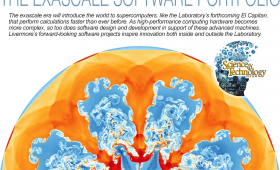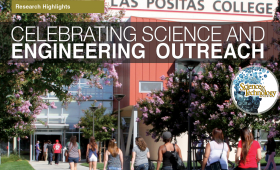Researchers have shown how applying pressure to a specific thermoelectric material, TiNiSn, increases its efficiency and leads to a structural phase transition.
Science and Technology Highlights

New work by computer scientists at Livermore and IBM Research on deep learning models to accurately diagnose diseases from x-ray images won the Best Paper award for Computer-Aided Diagnosis at the SPIE Medical Imaging Conference.

Livermore scientists have achieved a near 100 percent increase in the amount of antimatter created in the laboratory.

According to a Livermore report, California will need to both intensify efforts in emission reduction measures and technologies that are already underway and deploy technologies that dramatically reduce existing emissions.

Lawrence Livermore will be among the world’s first high-performance computing (HPC) centers to deploy an exascale-class system.

The Laboratory has launched the new Space Science Institute, intended to boost cross-discipline collaboration and discovery.

For nearly half a century, the Laboratory has created unique one-page charts that diagram the nation’s energy use and consumption in an easy-to-understand format.

Researchers gain new insights into why small eviations from perfect spherical symmetry can lead to significant distortions of the implosion and ultimately degrade inertial confinement (ICF) fusion performance.

Now in its 11th year, the Lawrence Livermore–Las Positas College Science and Engineering Seminar Series provides Livermore scientists and engineers a forum to share their research with students, faculty, and the Tri-Valley community.

A technology once rejected for fusion power plants now supports a promising new flash neutron imaging capability.

